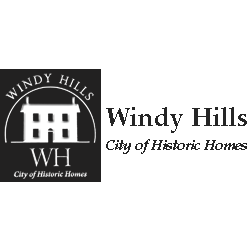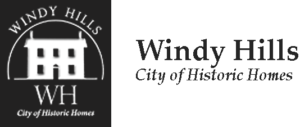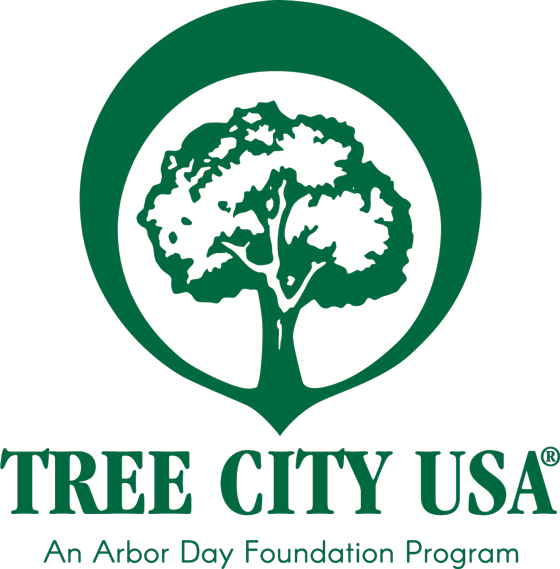Rental Ordinance and Rental Registration Form
At its December 2024 meeting, the Council voted to revise and update Windy Hill’s Ordinance Chapter 110: Private Property Rentals. Originally enacted in 2018, this ordinance was designed to address challenges associated with certain rental properties within the City. Since its implementation, the ordinance has been highly successful and has even been adopted by several other small cities in the Metro area.
The recent revisions aim to provide greater clarity by redefining “rental property” to explicitly include “owner-occupied” properties. These updates will enhance the City’s ability to address issues related to short-term rentals and owner-occupied properties with tenants (lessees).
The revised section is provided below, in italics:
§ 110.01 REGISTRATION REQUIRED
(A) Registration with the city of all rental property located within the City of Windy Hills by persons owning, managing, leasing, and/or renting property is hereby required. Windy Hills considers any property to be a rental property if any amount of money or services are exchanged for the right to live there. This includes any person who pays utilities, HOA Fees, mortgage, or taxes. Exceptions will be made for those properties where ownership has been transferred to a Trust, and any beneficiary(ies) of the trust resides at the property or a relative who is residing at an owner-occupied property.
The intent of this Ordinance is to establish a base standard to prevent or correct conditions that presently exist or could exist in the future.
This Ordinance will address the following:
- Registration of all rental property by persons owning, managing, leasing or renting property and not residing at said property.
- Registration of the rental property will be required for persons renting one or more rental units.
- The provisions of this Ordinance shall apply to any residential dwelling, including those units in a condominium located in the City that is, at any time, rented or leased to members of the public.
- Annual registration will be required for each rental unit. All property owners in the City of Windy Hills must annually register their properties prior to January 1 each year. The owner will pay a $150 annual registration fee to the City of Windy Hills. Owners of more than one rental unit must register them separately and pay an additional $75 per rental unit. RENTAL REGISTRATION FORM: Click on the following link to open and print the rental registration form: 2025 Rental Registration
- Any owner who fails to register his/her Windy Hills rental property will be subject to a $500 fine. If not paid within ten business days of the receipt of non-payment of annual registration letter, a lien will be filed against the said property owner.
- Inspection of the exterior of the rental unit must be performed before a rental registration is considered valid.
- By the nature of this Ordinance, all owners and managers are agreeing to allow the code enforcement officer from the City of Windy Hills to inspect the exterior of the rental property. Inspections will be performed with prior notice to the owner or manager of the rental unit with sufficient time to notify the lessee. Violations found during the inspection of the rental unit will be given 10 business days to be corrected.
- Owners, managers, rental agents, and occupants are required to comply with Metro Louisville Land Development ordinances as they apply to residential properties. Additionally, owners, managers, and rental agents agree to comply with all Metro Louisville and Windy Hills ordinances with regard to property conditions of both interior and exterior of the rental home. Any such condition which constitutes a public nuisance, health hazard, or source of filth or infestation to develop thereupon through the accumulation of rubbish or excessive growth, weed, grass, or shrubs is considered in violation of this ordinance.
- PENALTY: (a) Any owner, his/her agent, or occupant who has received notice of a violation of the provisions above and who has failed to abate the violation may be charged with a violation of this Ordinance in a criminal complaint in Jefferson District Court. (b) Any owner, his/her agent, or occupant who violates any provision of this Ordinance shall be guilty of a violation which shall be punishable by a fine of up to Two Hundred Fifty Dollars ($250.00)
- A rental housing standard is set forth in this Ordinance as meeting the Windy Hills property Ordinance Standards.
What Is The Rental Housing Inspection Program?
The ordinance simply requires that all rental housing in the City of Windy Hills be registered with the City. The program is based on an ordinance that requires the exterior inspection of all rental housing within the City of Windy Hills. The properties are inspected for compliance with state and local laws involving property maintenance. Once an inspection is complete the owner is notified of any deficiencies found and asked to correct them within 10 business days.
What Happens If There Are Violations?
Where violations are found the owner will receive an inspection report showing the problems and location. The notice will also include a date for compliance – 10 business days from the notice date.
What Will The Inspector Be Looking For?
The inspector will be looking for a number of things including junk cars, dead vegetation, accumulations of junk and debris, landscape maintenance, building maintenance, graffiti, adequate refuse facilities, illegal/unpermitted construction, dilapidated structures, and substandard housing conditions as delineated in the metro land development ordinances.



